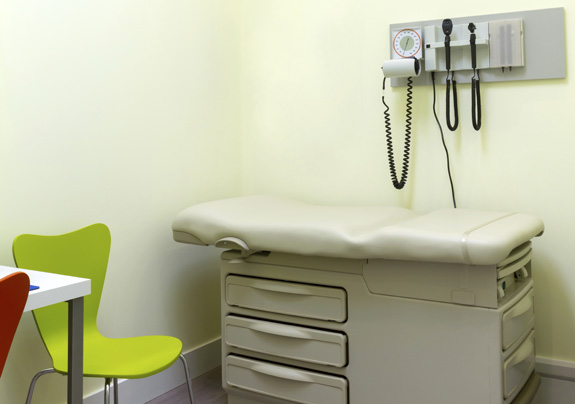Nearly 8 In 10 Kids Don’t Get Developmental Screenings

Though routine developmental screening is recommended for all children, a new report from the CDC indicates that formal assessments are not commonplace. (Thinkstock)
The vast majority of American children may not be receiving recommended screenings for developmental delay, the U.S. Centers for Disease Control and Prevention says.
In a government survey, parents of 79 percent of young children reported that they had not been asked to participate in screening efforts in the previous year. This, despite recommendations that children are routinely checked at pediatrician visits for signs of developmental issues.
The findings come from an analysis of data collected in 2007 and 2008 through the National Survey of Children’s Health published this week in a supplement to the CDC’s Morbidity and Mortality Weekly Report. The issue includes a broad review of preventive care services recommended for children and adolescents ranging from newborn hearing tests to hypertension screening.
Advertisement - Continue Reading Below
Parents of children ages 10 to 47 months were asked if their child’s health care provider had them complete a developmental questionnaire within the previous year. The surveys, which ask about development, communication and social behaviors, are part of the recommended screening procedures for young children.
Though most said they did not participate in screening, parents of slightly more than half of children did say that their doctor asked about whether they had concerns with their child’s learning, development or behavior, suggesting that physicians are relying on more informal conversations to assess their patients. These conversations, however, did not appear to prompt additional screening in cases where parents expressed concerns.
The American Academy of Pediatrics recommends that doctors use a developmental screening tool to assess all children at ages 9, 18 and either 24 or 30 months. Developmental screenings are significant, the report said, because children who are at risk for delays are more likely to receive early intervention if they participate in such efforts.
“We must protect the health of all children and ensure that they receive recommended screenings and services,” said Stuart K. Shapira, chief medical officer and associate director for science at the CDC’s National Center on Birth Defects and Developmental Disabilities. “Increased use of clinical preventive services could improve the health of infants, children and teens and promote healthy lifestyles that will enable them to achieve their full potential.”
The report did note that data was collected prior to the implementation of the Affordable Care Act. Under that law, most insurance plans must cover developmental screening at no cost to patients.
Read more stories like this one. Sign up for Disability Scoop's free email newsletter to get the latest developmental disability news sent straight to your inbox.


